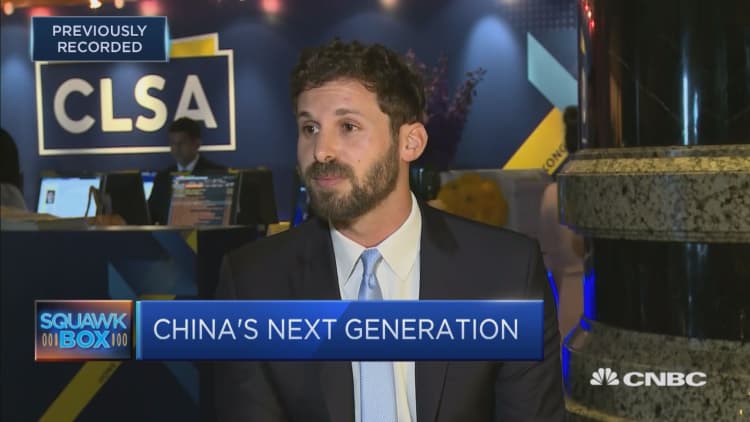
Chinese millennials have a unique identity that's different from their western counterparts, said one China expert.
Foreign firms hoping to tap into the market of young Chinese adults need to understand what shapes their decisions, Zakary Dychtwald, the founder and CEO of think tank Young China Group told CNBC at the CLSA Investors' Forum on Tuesday.
There are currently about 400 million millennials in China, he said, adding that the figure is well above the number of millennials in the U.S. and Canada combined.
Just the sheer number of those belonging to this group, also known as Generation Y, warrants notice as they hold "enormous economic and political consequence," noted Dychtwald, who authored a book called "Young China."
A lot of Chinese millennials are well traveled, exposed to international culture and may not agree that western nations represent the idyllic "city on the hill" that they were once told, Dychtwald said.
They want to be recognized for being culturally different from their western peers, and they may not even desire westernization, he added.
For most of Asia, modernization has been synonymous with westernization — but China is different, Dychtwald explained.
"Even though there are other eastern economies to rise over the last 50 years, there hasn't been one with enough economic and political consequence like China to actually change the way that the western world spins," he said. "It used to be that as a country modernizes, they would sort of slide into our gravitational field in the west."
But China has taken a very different path as the country holds great clout and can modernize on its own terms, he said.
China has outpaced some of the more developed economies in the world in terms of technological advancement, Dychtwald said, citing the example of its extensive cashless system.
WeChat, owned by Tencent, is China's largest messaging app with over 1 billion users. Around 800 million of them use the WeChat Pay function — it's mobile payment platform.
Such a seamless blend between commerce and social media is not seen anywhere else in the world, Dychtwald said.

